FROM OUR JULY 2024 MR AWARDS ISSUE: DAPPER DAN: VANGUARD AWARD

The entire MR team proudly presents our July 2024 MR Awards issue. If you haven’t received a hard copy, please page through a digital version at Issuu, and we’ll continue to post individual stories here on MR-mag.com. If you haven’t been getting MR in print, be sure that you are on our mailing list for future issues by completing this form.
Success, as officially defined in the Oxford dictionary, means “the accomplishment of an aim or purpose.” We prefer a different definition, one we discovered in writings by children with disabilities: “If you achieve what you want and are happy, that is success.” And to that, we add our own observation: the most successful people are those who follow their dreams and inspire others to follow their own. May dreams come true for MR’s innovative and intrepid 2024 honorees. May you keep on creating!
Dapper Dan occupies a singular position in our industry. Like an outsider artist, he forged his own path, teaching himself the ins and outs of garment construction and marketing, yet, like so many other menswear success stories, he looked to an established icon—Ralph Lauren—as a role model. Dapper Dan built his reputation first among his hometown of Harlem’s gangsters and rappers, creating collections that took the concept of logomania and a “more is more” aesthetic to create his signature style. He’s now a highly sought-after design consultant, lending his name and talents to collaborations with megabrands like Puma, Gap, even Sherwin-Williams, and, in perhaps one of fashion’s most ironic turnarounds, Gucci itself. Interviewing Dapper Dan felt less akin to questioning a fashion designer or corporate executive and more like sitting at the feet of a spiritual guru. Just when you think he’s wandering, you realize that he’s connecting larger truths, providing a more nuanced, holistic answer to the questions.
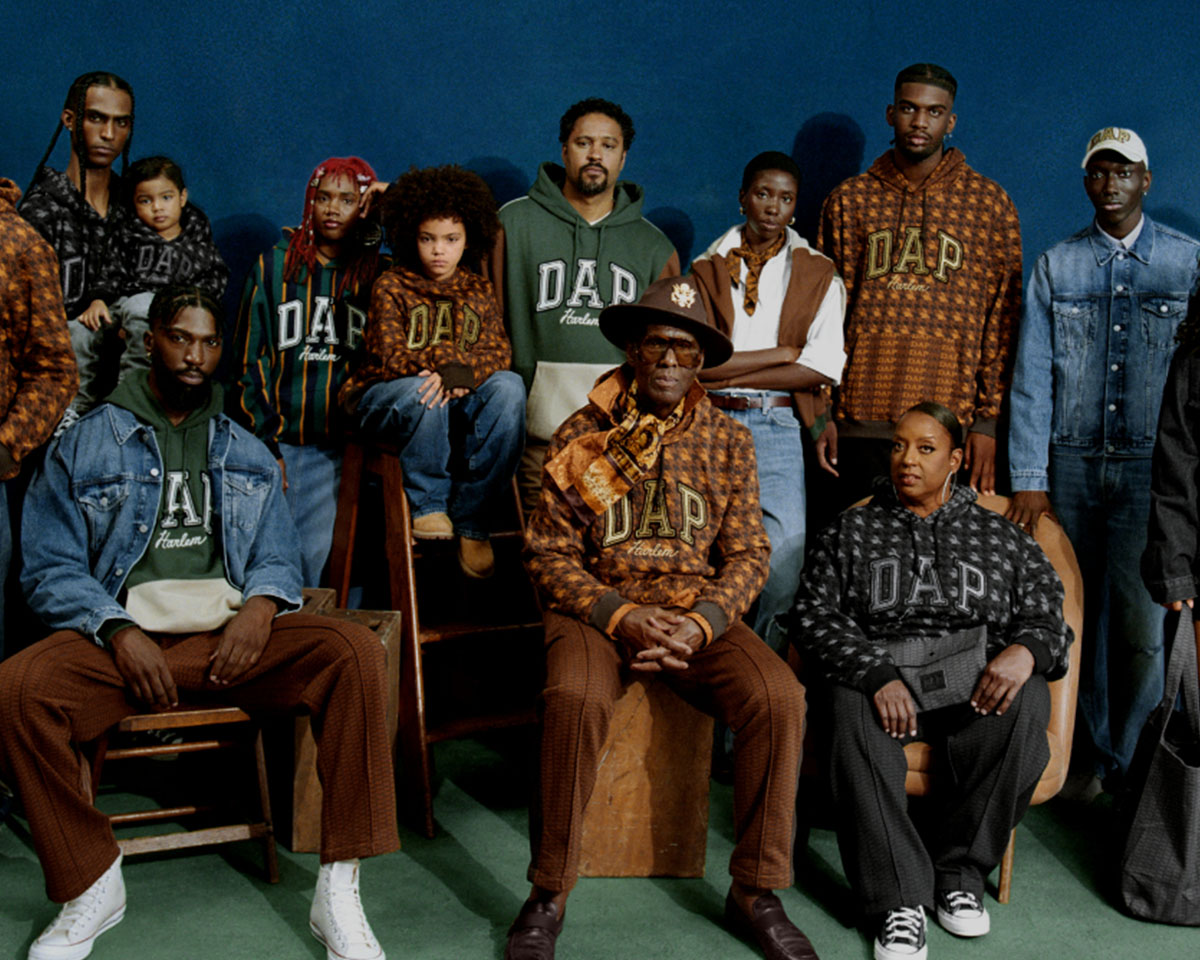
How did you get into the menswear business?
The catalyst for all of this was my desire to be involved in something positive. Something I enjoyed. Something that would allow me to remain in Harlem but also to escape
from the Harlem I grew up in.
I had Irish friends—my best friend was Jacky Michaels—as well as Italian, Jewish, and Greek friends, and we were all here in Harlem and poor at the same time. I’m the first generation of the Great Migration to come from the South. When traveling to other cities—especially Chicago—I’d ask, ‘Where are the Puerto Ricans? Where are the Jewish guys? I saw how pocketed it was and realized the significance of Harlem and its diversity. I expected it to be like that everywhere. I said, ‘This is what makes home.’
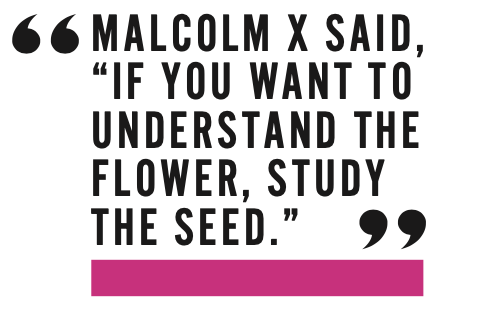
At the age of 23, I was incarcerated for 90 days, and when I came out, I wanted to be reborn. I started reading a lot of spiritual stuff. I read a book of Malcolm X’s speeches, and one that really was important was where he said, “If you want to understand the flower, study the seed.”
So, I decided to go into fashion and asked who in fashion has made a deep enough footprint for me to step in. And who is close enough to me in terms of ethnic representation? And I came up with Ralph Lauren, who had an amazing mind for telling a story and bringing that story to life. He was a major influence on me. His beginnings resonated with me. He was young. He’s Jewish, and this was in the ‘60s when he started, so it wasn’t that comfortable. He acknowledged that he was confronted with obstacles. He Anglicized his name. I knew that I couldn’t Anglicize my skin, but what I could do was build enough intelligence in the area that I wanted to pursue so that I would be respected.
You’ve written a book, Dapper Dan: Made in Harlem: A Memoir. What would we learn from reading it?
The most important thing you’ll learn from it is the power of reinvention. That’s what the book is basically about—transgressing from the lower levels and reaching for the highest levels. You’ll also learn a lot about history and my family. Again, I’m the first generation to grow up in Harlem from the Great Migration. I could see that there was a similarity between me and the people whose families migrated from Europe.
In 1968, I was suffering from an identity crisis. I wrote for a radical newspaper called 40 Acres and a Mule. I had a revolutionary spirit and challenged everything. I saw everything through the lens of 400 years of slavery. A distinguished professor, Dr. Henry Clarke, visited one day, and somebody asked him why Black people are so oppressed. He responded that it was because of the transgressions we made against ourselves before Europeans came into our lives. Now, breaking that down is a whole different chapter, but what that statement did was remove that stigma from my mind of the 400 years of slavery. I was offered the opportunity to go on a seven-nation tour of Africa, so I had to go see for myself. Since then, I have made it my business to learn all I can about anything that interests me. My approach to everything now is to ask how it started. Where did it start?
Tell us about your creative process.
A young kid saw me on the train the other day. And I’m very popular now, so people recognize me. The kid said, “Dapper Dan, I never thought I’d see you on the train.” And I told him, I’m on the train so that I can see you.
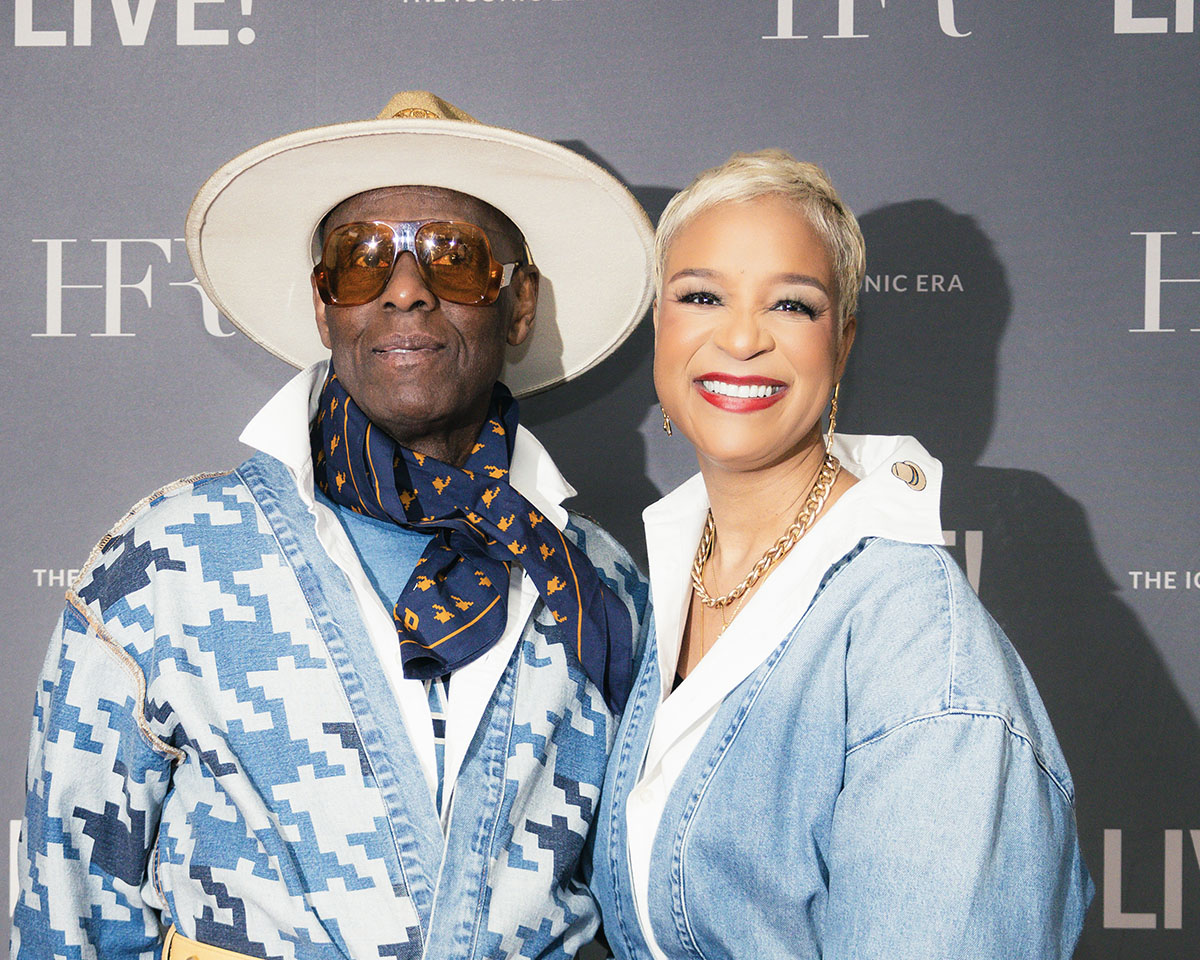
How do I stay relevant after 35 years? One of my mantras is I do not dictate fashion. I translate culture. I immerse myself in Harlem. I was born here, I live here. I only leave to get a picture of what Harlem looks like from somewhere else. I’m always in the street, always out in the public, so I can see where the culture is.
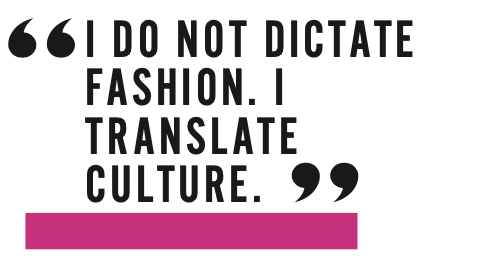
I ask all the rappers that I’ve dressed, as I did with the gangsters before them, “What are you trying to say? Where do you want to be?” I want to transform them so they become part of the process. This is why I never get obsolete: I’m always part of the culture. They want to represent the culture, so I help them get it all together. When I was in Italy and did my first collaboration with Gucci, we had a medallion, a two-faced coin. We needed a slogan to put on the coin: I wanted “E pluribus unum.” “Out of Many, One.” When I went to Africa and did all my research, the problem was that I went back. But I wanted to take everybody with me. The further you go back, the more we come together, and the more alike we are. And that’s what I push through the brands, silently and quietly. People want to be angry. We need that subliminal voice that speaks to love, that speaks to that which is enormous. Let me push where I think America and the world should be. I feel that divine providence might allow me to do that.
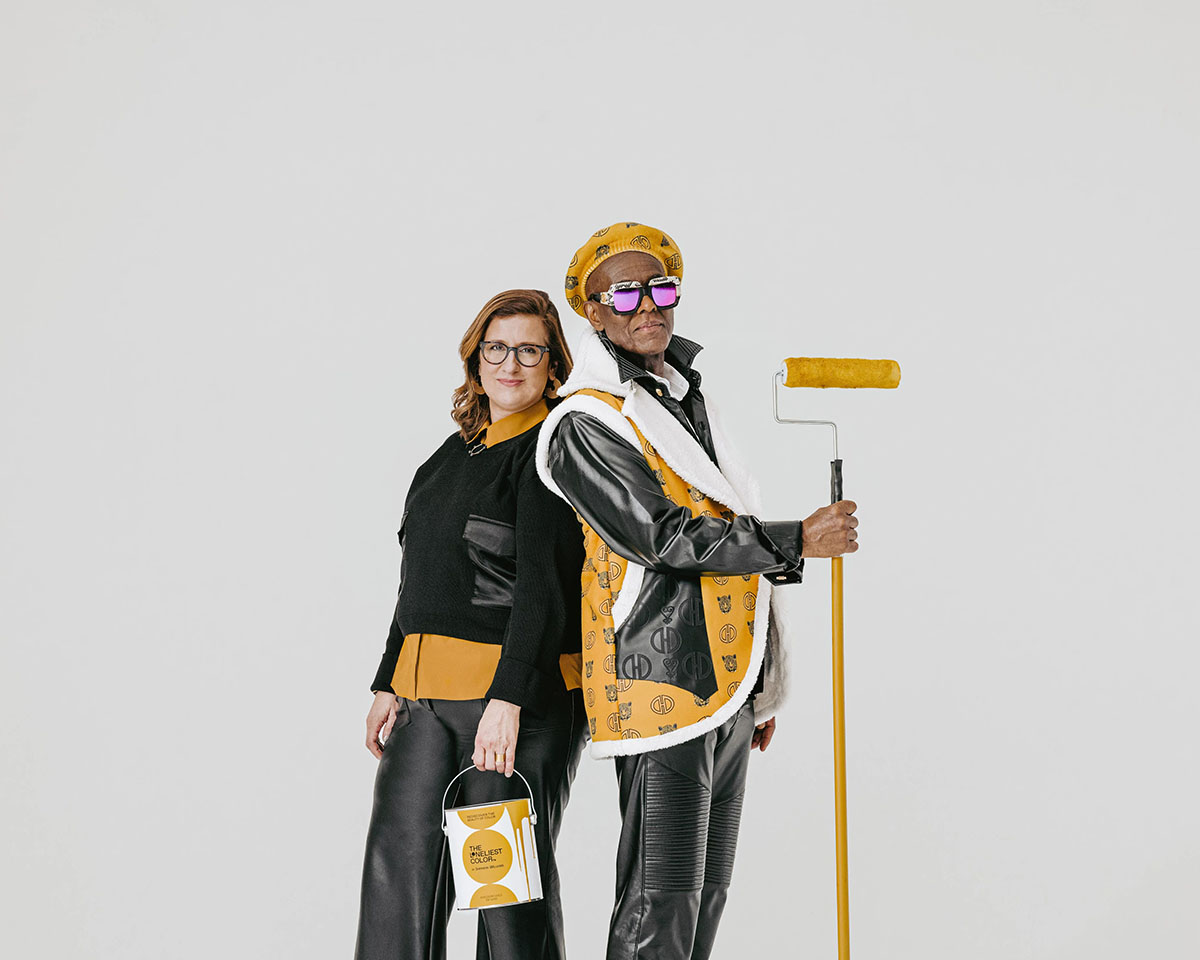
You’re becoming more than a fashion icon; you’re almost a spiritual leader.
You hear me say, “I do not dictate fashion; I translate culture.” My biggest idols are the Beatles because they translated our culture in such a magnificent way. They said, “We are Jesus now,” which got them into a lot of trouble. So, I said fashion is like the robes for saints. It’s a spiritual robe, and all you have to do is bring it out and use it in a way that makes it a garment of change.
INDUSTRY ACCOLADES
“Dapper Dan is an incredible example of a true icon – someone who champions originality in both style and substance, creating positive change by translating culture, fashion, and music by being his truest and most unapologetic self. It’s a true honor to know him and celebrate his legendary work.” —Mark Breitbard, Gap Brand
“Many words come to mind when I reflect upon Dapper Dan’s influence in fashion. ‘Icon’ is undoubtedly one of them, but ‘Inventor’ continues to be the adjective that fuels me and many others. He opened his Harlem Boutique over 40 years ago with the intention to innovate, inspire, and uplift his community. That mission remains true today.” —Edwina Kulego, MMGNET Group
“Dapper Dan’s impact on the fashion industry transcends mere trends; he has woven culture and creativity into the very fabric of style. His innovative spirit defies age, proving that there’s always more to share, while his mentorship nurtures the next generation of designers.” —Brandice Daniel, Harlem’s Fashion Row
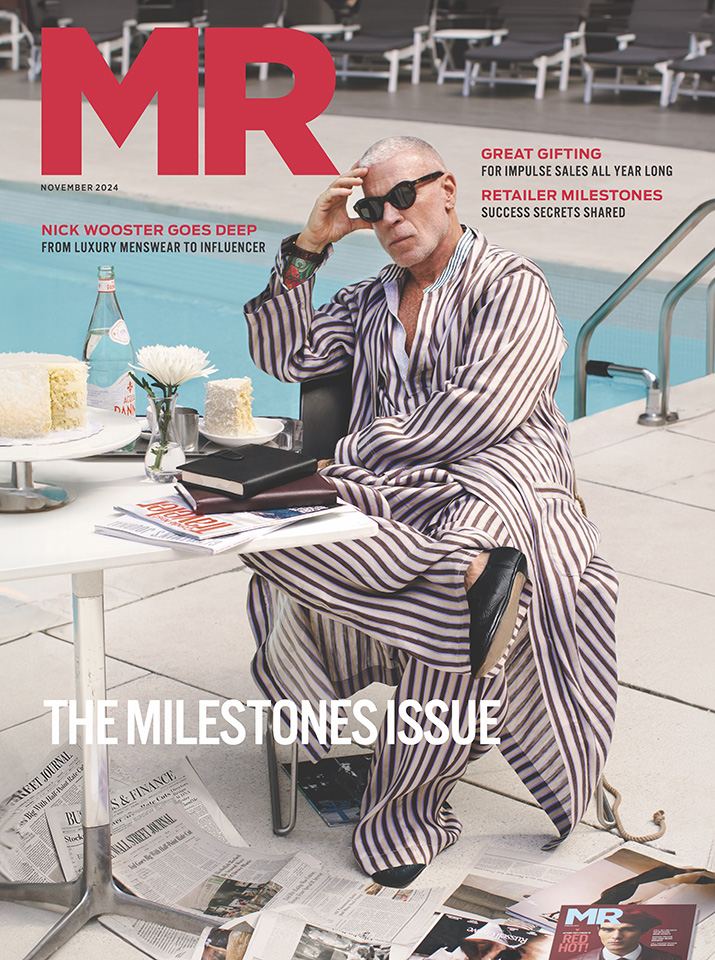

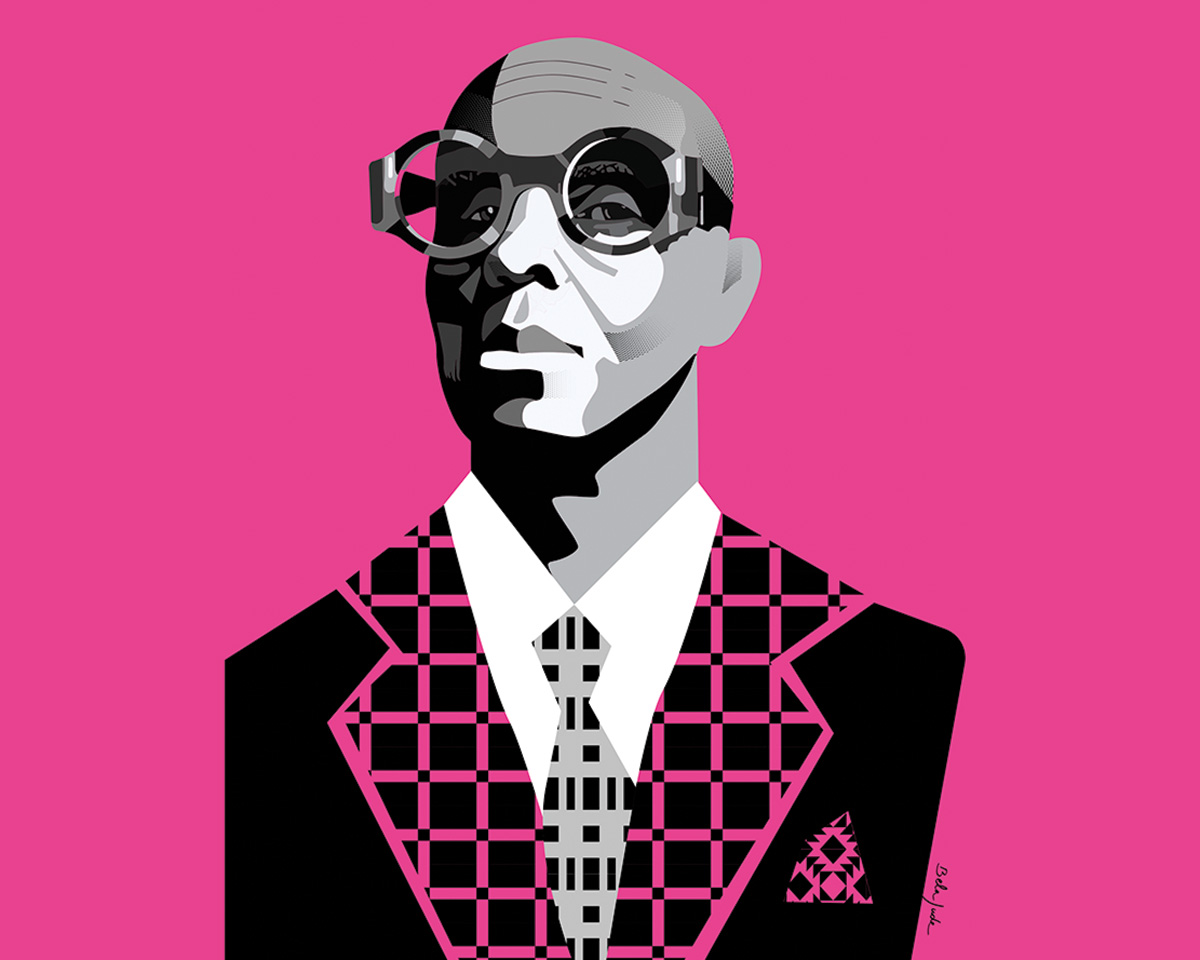
I love this story! What an incredible life and articulation of life lessons. Thank you for sharing it.